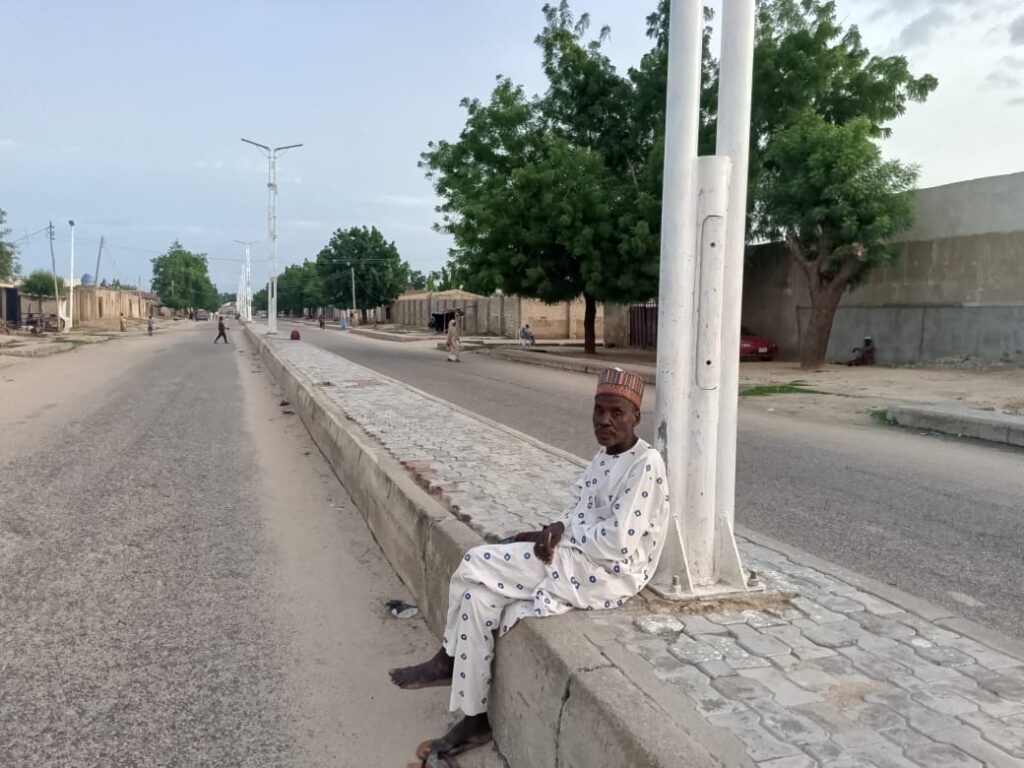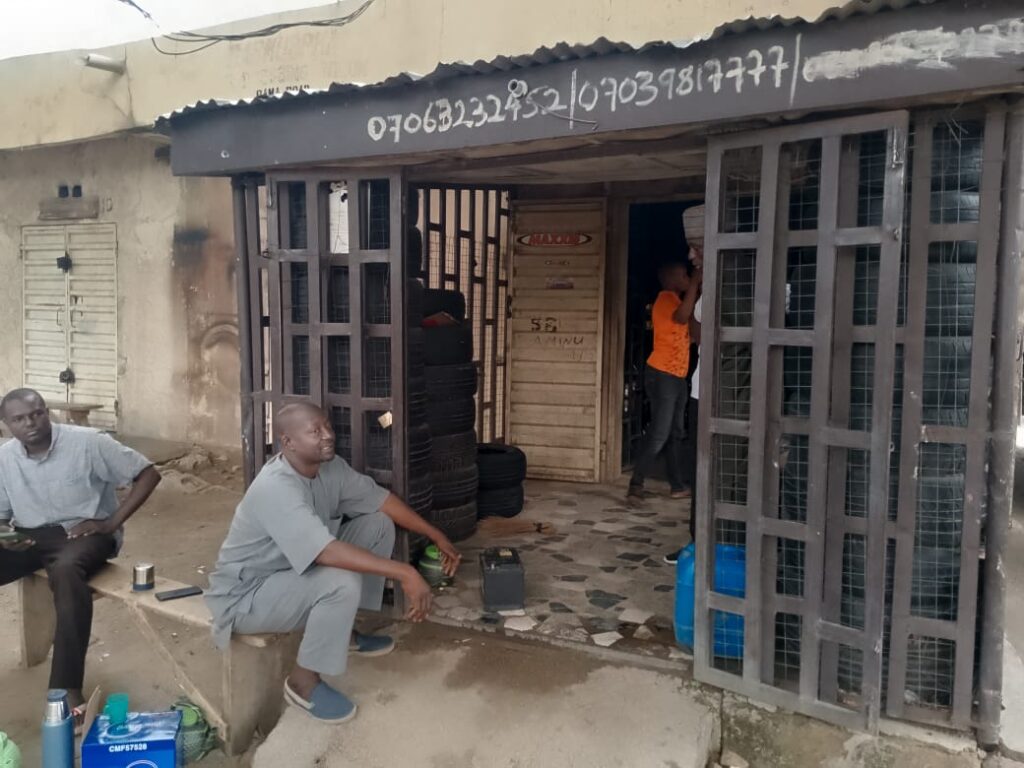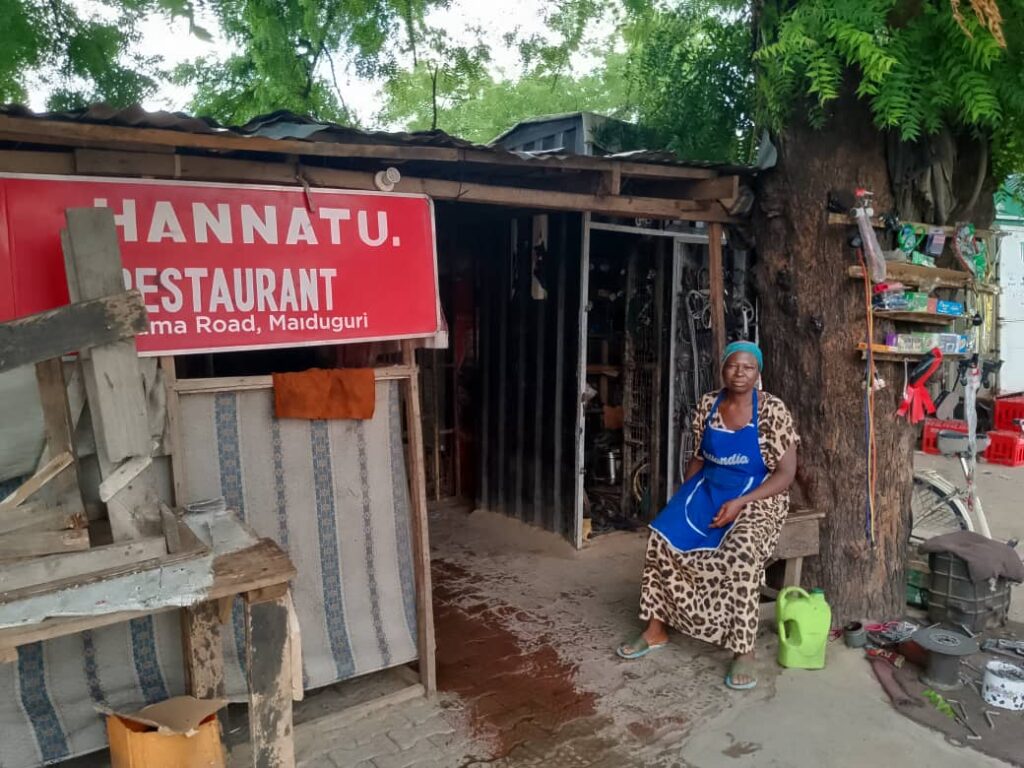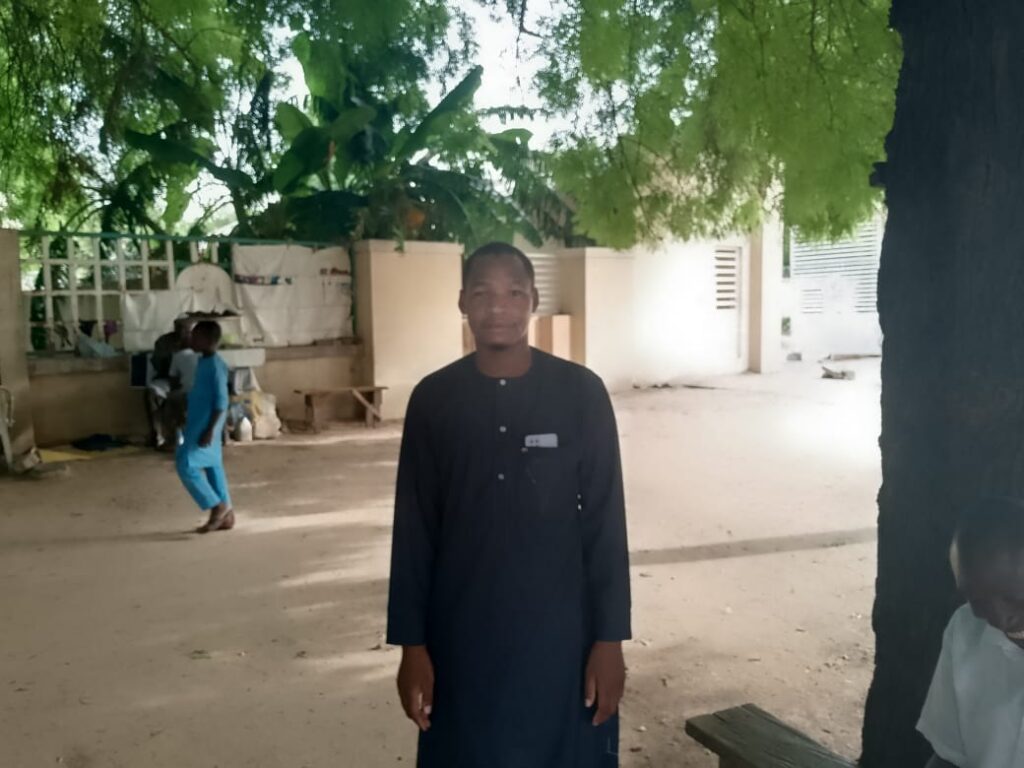In the Sabon Layi layout of Maiduguri, the Borno state capital in northeastern Nigeria, nightfall once meant navigating dark streets with unreliable diesel-powered street lights and lukewarm solar lamps. The narrow streets, particularly those leading to Gwange, were fraught with danger due to poor lighting.
“Few of the lights would flicker on and off,” said Elisha Emmanuel, a resident of Gwange. This unreliability made evening outings daunting and unsafe.
However, things have changed. A new network of reliable streetlights now illuminates Sabon Layi, transforming the community. Mohammed Ibrahim, a longtime resident, expressed relief, saying, “Now we can walk to the mosque for evening prayers without fear.”
The impact of these streetlights goes beyond aesthetics. They have significantly deterred crime, allowing residents to move freely and safely at night. “Our women can walk to nearby stores without fear,” Mohammed added.
The improved lighting has also revitalised community life, enabling activities like evening football matches. “The auto-on feature is fantastic,” shared Emmanuel, a local football enthusiast. This simple infrastructure change has enhanced community spirit and safety.
The benefits extend beyond Sabon Layi and Gwange, positively affecting the entire Maiduguri area. Abdullahi Boss, a member of the Civilian Joint Task Force, noted a significant decrease in crime since the installation of the lights. “Our work is easier, and we can spot suspicious movements from a distance,” he said.
Local businesses have also benefited. Ibrahim Surajo, a fruit seller, no longer spends profits on generator fuel. “The lights automatically turn on at sunset, allowing me to stay open later and save money,” he explained.

Local businesses have also benefited. Ibrahim Surajo, a fruit seller, no longer spends profits on generator fuel. “The lights automatically turn on at sunset, allowing me to stay open later and save money,” he explained.
Alhaji Garba, an experienced car spare parts dealer on Bama Road, appreciates the advantages of extended daylight. Although he still closes his shop early due to his age and family commitments, the streetlights create a safe and well-lit environment for his evening prayers, enhancing the security of his business.

“The automatic lighting is a blessing,” he says. “I can concentrate on my prayers and return home with peace of mind, knowing my shop is well-lit and secure.”
Hannatu Umar, a restaurant owner, has observed a decline in undesirable activities near her establishment.
“The constant lighting has discouraged people from using the area as a public toilet,” she notes.
“It’s a small change, but it significantly improves the cleanliness and appeal of our surroundings.”

Despite these improvements, challenges remain. Mallam Buba Modu, a community leader, highlighted the need to pay attention to drainage issues.
“Streetlights are a welcome development, but we need the government to address other pressing concerns.”
Overall, the new streetlights have not only improved safety and reduced crime but have also boosted local businesses and community life. This transformation marks a significant step forward for Maiduguri, offering a glimpse of a brighter and more secure future.
Before now, Maiduguri relied heavily on diesel generators to power streetlights on major roads. This approach proved costly, inefficient, and environmentally harmful. A 2018 report highlighted an expenditure of over N2 billion on fuel for street lights over four years.
In contrast, the first phase of the recent solar streetlight project cost only 300 million Naira, according to the Borno State 2023 approved budget.
The diesel-powered era faced operational challenges, with lights typically running from 6:30 pm to 11 pm, leaving streets dark for the rest of the night. This issue worsened during the 2019-2022 electricity blackout caused by insurgent attacks.
Adding to the problems, some residents tapped into streetlights for personal use. A 2023 report exposed a man illegally using streetlight electricity for his ice-block refrigerators, even offering a bribe to avoid arrest.
Mohammed Abdulkadir, a Mafoni resident, noted that people frequently misused diesel-powered lights to charge devices.
Driven by financial burdens and environmental concerns, the Borno State government turned to solar power as a sustainable solution. While the transition is ongoing, the solar streetlight project has been embraced by residents, significantly improving safety, security, and quality of life.
However, diverse perspectives exist. Onoja Odeh, a roadside barber in Gwange, misses the brighter diesel-powered lights that illuminated his workspace. “The solar lights are not as bright, affecting my ability to serve customers,” he explained.
Bashir Mustapha, another Gwange resident, acknowledges the positive impact on safety but highlights other needs. “We urgently need new business premises,” he pleaded.
“I’d rather have a place to earn a living than well-lit streets with an empty stomach.”

This underscores the reality that while the streetlights are an improvement, other community challenges remain.
This report was produced under the 2024 HumAngle Accountability Fellowship.
Support Our Journalism
There are millions of ordinary people affected by conflict in Africa whose stories are missing in the mainstream media. HumAngle is determined to tell those challenging and under-reported stories, hoping that the people impacted by these conflicts will find the safety and security they deserve.
To ensure that we continue to provide public service coverage, we have a small favour to ask you. We want you to be part of our journalistic endeavour by contributing a token to us.
Your donation will further promote a robust, free, and independent media.

